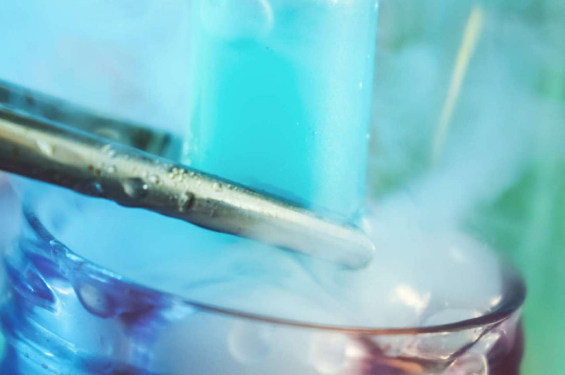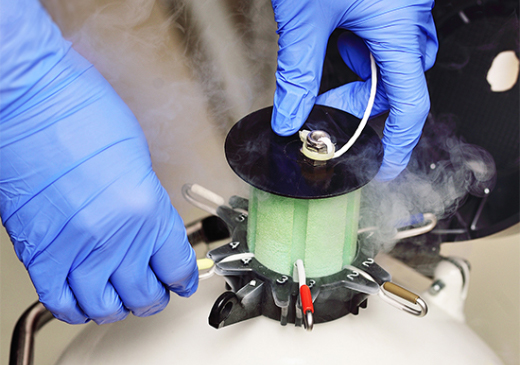Fertility Preservation for Cancer Patients
A cancer diagnosis and the treatment process is devastating, not to mention overwhelming. This is further magnified if you are of reproductive age or have not reached puberty, as there are concerns on how cancer treatment may affect your fertility. Certain cancer treatments will harm your fertility, depending on the type and stage of cancer, type of cancer treatment, and your age. However, through modern technology, there are steps that can be taken before you start cancer treatment to preserve your fertility.
Fertility preservation is recommended for cancer patients who are about to undergo fertility diminishing cancer treatments, but would like to start their own family in future. At Sunway Fertility Centre, we make available fertility preservation services for such patients. Although this service is part of fertility treatment, it is not limited to fertility patients only.
What is Fertility Preservation?
Fertility preservation involves freezing and protecting your reproductive cells, namely eggs and sperm, via a medical process that freezes these cells with liquid nitrogen. Later on, these frozen eggs/sperm are thawed, fertilised in the laboratory, and the resulting embryo transferred to the woman’s uterus. This option can be considered by adults and even some children of both sexes if they are about to undergo or have undergone cancer treatment.
It is important to understand that fertility preservation procedures do not guarantee pregnancy, and success varies widely depending on age, health and treatment-related factors, among others.


How Do I Preserve My Fertility?
Your oncologist will refer you to our fertility specialists in Sunway Fertility Centre for consultation and further discuss your treatment options. This award winning facility is equipped with an IVF laboratory and state-of-the-art equipment required to retrieve and store your frozen biological specimens. The medical and clinical team at this centre are well experienced and qualified to handle cancer patients who are seeking fertility preservation.
As part of the fertility preservation process, females undergo ovarian stimulation before the released eggs are aspirated through an egg pick-up procedure and frozen for future use. As for the males, they are required to produce their semen sample to be sent to the IVF laboratory for freezing. If a male is unable to produce a sample naturally, there are a few surgical options available.
Cancer in itself can cause men to have poor sperm quality, even before starting treatment. Cancer treatments such as chemotherapy, radiation therapy, surgery to the reproductive organs, and hormone therapy are important for your recovery, but may harm reproductive organs and glands that control fertility. Fertility problems in men due to cancer treatment may result from lower sperm or semen production, damaged sperm, or inability to create semen. These changes to your fertility may be temporary, or permanent.
Cancer treatments such as chemotherapy, radiation therapy, surgery to the reproductive organs, and hormone therapy are important for your recovery, but may harm reproductive organs and glands that control fertility. Depending on the treatment, there are different effects, for e.g. primary ovarian insufficiency, disruption to the menstrual cycle, irregular or no menstrual periods, reproductive tissue scarring, lowered AMH levels, among others. These changes to your fertility may be temporary, or permanent.
Children undergoing certain cancer treatments are at risk of diminished fertility; affecting a girl’s ovaries or a boy’s testicles (testes). These side effects may last for a short time after cancer treatment; or long term and could lead to infertility. In girls, eggs may be damaged and hormone production affected. There is also the possibility of delayed puberty, irregular menstruation or menstrual periods stopping. In boys, radiation therapy may damage sperm and affect their hormone production.
Fertility preservation completed before or even after cancer treatment, can help many kids start families of their own in future when they are ready. There are options to preserve your child’s fertility and parents should discuss this with their doctor.
What Should I Ask My Fertility Specialist?
They will be many questions running through your mind, feel free to ask our fertility specialists. They are highly skilled and knowledgeable in their field of expertise and are able to allay your concerns about the effects of cancer on your fertility. Here are some questions you might want to consider asking:
- What are the fertility preservation options available? Will these affect the effectiveness of my cancer treatment?
- Could my treatment damage my reproductive organs or affect my ability to have children?
- After treatment, how will I know if my fertility is affected?
- Will the treatment have any effect on my child’s development or puberty?
TALK TO US!
It is imperative to talk to your oncologist and fertility specialist to understand how your cancer treatment or surgery may affect your fertility before starting treatment or undergoing the surgery. If this was not discussed before your treatment or surgery, it is important to bring it up as soon as possible after your treatment or surgery treatment starts.
